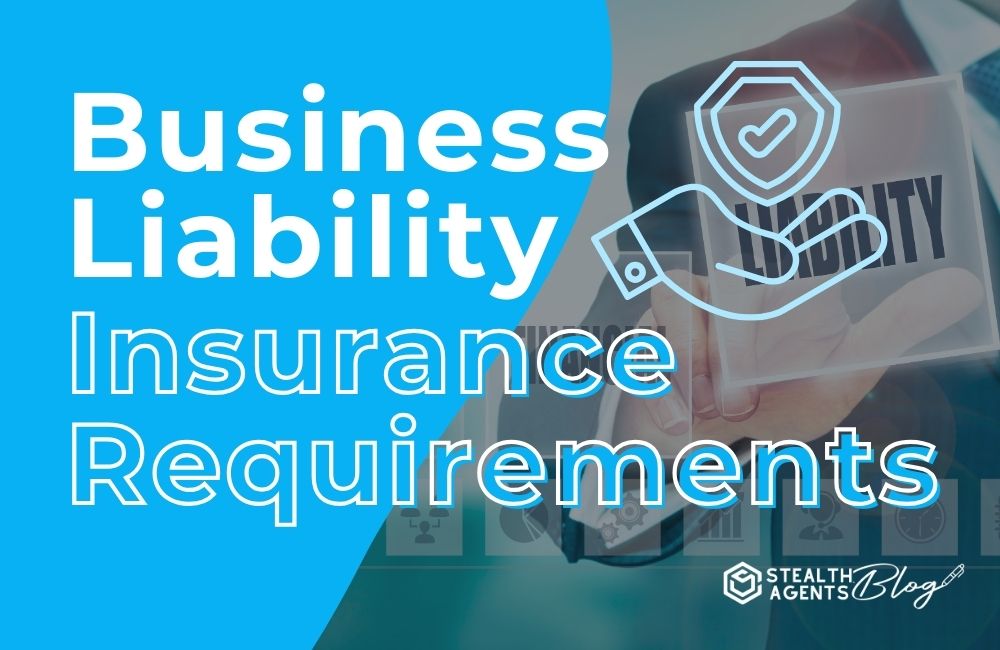Starting a business involves many responsibilities, including understanding insurance requirements.
Business liability insurance is essential for protecting your assets and securing your future.
Navigating insurance policies can be overwhelming, but a virtual assistant for insurance companies can help.
A team of virtual assistant insurance manages insurance needs efficiently, ensures compliance with laws, and mitigates risks.
Hire virtual assistants is the best option if you don’t have the idea. Stealth Agents can handle all your business problems,
Book a free consultation now.
In this blog, we’ll explore the basics of business liability insurance, its requirements, and how virtual assistants are changing the way companies handle insurance. Join us to learn how to safeguard your business effectively.
The Essential Shield: Business Liability Insurance Defined
Business liability insurance—often ambiguously referred to as commercial general liability insurance—is a crucial component of your risk management strategy. At its core, it protects your business from the financial repercussions of a lawsuit.
This could range from bodily injury claims, property damage, medical expenses, libel, slander, legal defense costs, and settlement bonds or judgments.
But why is it pertinent?
A lawsuit can stem from the most innocuous of scenarios, like a customer slipping in your store, or a contractual disagreement, and can result in astronomical settlements or legal fees.
With liability insurance, your financial well-being in such instances is safeguarded.
Protection That Pays: The Importance of Liability Insurance
Liability insurance is not optional; it’s a staple in the business world for various reasons. It’s also regulatory. For instance, if you’re renting your business space, your landlord could require you to have a certain level of liability coverage before they’ll lease to you. It’s not merely about protecting you, but also about compliance.
Just imagine not having business liability insurance when you’re at the receiving end of a lawsuit. The cost of defense might alone run into hundreds of thousands of dollars. Beyond that, you could face monumental settlement payments, crippling the finances and future of your business.
*advertisement*
Tired & Overwhelmed With Administrative Tasks?
Hire A Top 1% Virtual Assistant From Stealth Agents!

Sign Up Below & Hire A Top 1% Virtual Assistant
Rated 4.7 Stars Serving Over 2,000+ Customers.
Hire Top 1% Virtual Assistants For $10-$15 Per Hour
Ask About Our 14 Day Trial!
*advertisement*
The Coverage Menu: Types of Liability Insurance You Must Know
There’s no one-size-fits-all when it comes to business liability insurance. Here are the main types that cater to different aspects of potential liability in your business:
General Liability Insurance
If your business causes physical injury or property damage to a third party, your general liability insurance kicks in. It’ll cover medical expenses, repair costs, and even legal fees.
Professional Liability Insurance
Also known as errors and omissions insurance, this one’s for service-based professionals. It comes to your aid if your client alleges negligence or failure to perform your professional duties.
Product Liability Insurance
Essential for manufacturers and retailers, it shields you from financial repercussions should your product cause harm or damage, which is grounds for a lawsuit.
Cyber Liability Insurance
In this digital age, a data breach or cyber-attack could land you in hot water. This insurance helps with damage control and recovery costs, including legal and PR expenses.
Each of these insurance types can be tailor-made to your specific business needs and should be assessed carefully to ensure no loopholes could leave you vulnerable.
Size Matters: Determining Your Coverage Needs
Selecting the right level of protection for your business is not a task to be taken lightly. It’s about understanding the potential risks and aligning the coverage to those risks. This involves a few key steps:
Risk Assessment
Start by conducting a thorough risk assessment. Businesses are as varied as the people who run them, and your potential liabilities will be unique to your industry, scope, and operations.
Professional Insight
Don’t go at it alone. Consult an insurance advisor who’s well-versed in commercial liability. Their expertise won’t just save you from common pitfalls; it’ll often save you money in the long run.
Reading Between the Quotes: Key Coverage Considerations
Your insurance policy can often be as complex as the scenarios you are trying to protect against. Here are some crucial elements to digest:
Coverage Limits
These are the most your insurer will pay for a claim. Choose these wisely, keeping in mind the worst-case scenario but also the realistic occurrences.
Exclusions
Every policy has them—they are the perimeters of the playfield. Knowing what your policy doesn’t cover is as important as what it does.
Premium Costs
The amount you pay for coverage is not just an expense, it’s an investment in your business’s security. Ensure you can sustain the premiums without burdening your financial health.
Benefits Beyond the Bottom Line: The Advantages of Compliance
The peace of mind business liability insurance affords is quintessential. Knowing that you have a partner in preserving your business’s integrity and financial well-being allows you to focus on growth rather than catastrophe.
Beyond that, compliance often breeds confidence in your clients and partners. It becomes an indirect yet powerful testament to your commitment to professional conduct and ethical practice.
Takeaways
Liability insurance requirements can feel daunting, and at times they are—this is insurance after all, where the finer details can often feel buried in the jargon. But when it comes to the welfare of your business, only through understanding and action can you ensure you’re playing the game with strategy and security.
Navigate these waters with care. Understand the policies you hold or are considering, familiarize yourself with the insurance lingo, and most importantly, don’t skimp where your business may be most vulnerable.
In the ever-shifting board of business, an insurance virtual assistant is your queen on the chessboard. It’s versatile, powerful, and can swing the odds in your favor when the game is on the line. Make your next move a calculated one.










